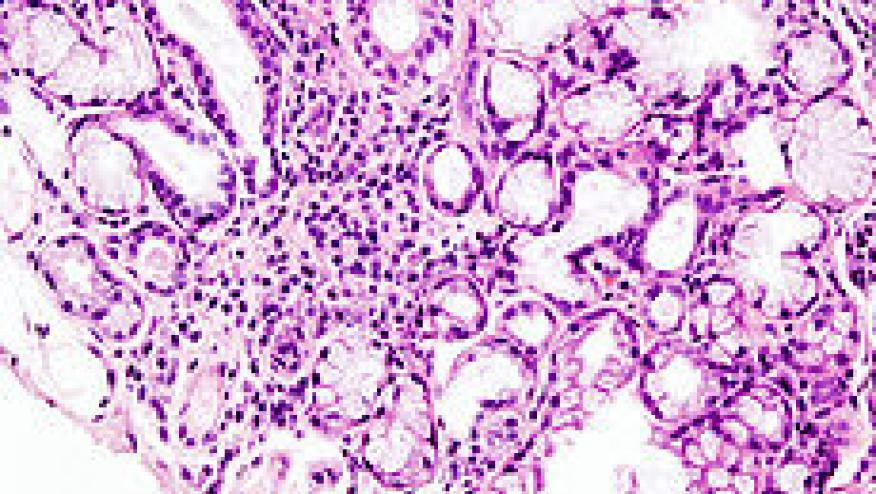Low Dose IL-2 Therapy in Sjögren’s Save

There is a large, unmet need in treating Sjögren’s syndrome, yet a new randomized clinical trial has shown that low-dose interleukin 2 (LD-IL-2) was effective effective and well tolerated in patients with primary Sjögren’s syndrome (pSS), with evidence of restored immune balance.
Findings In this randomized clinical trial of 60 patients with pSS, patients receiving LD-IL-2 had significant improvement in their European League Against Rheumatism Sjögren’s Syndrome Disease Activity Index scores at week 24, and the immunological analysis found that LD-IL-2 induced expansion of regulatory lymphocytes, leading to the restoration of immune homeostasis in pSS. Additionally, there were no severe adverse events in the LD-IL-2 group.
A double-blind, placebo-controlled randomized clinical trial of 60 adult pSS patients who were randomized to receive either placebo or LD-IL-2 for 12 weeks and with an additional 12 weeks of follow-up. The primary end point was defined as a 3-point or greater improvement on the European League Against Rheumatism Sjögren’s Syndrome Disease Activity Index (ESSDAI) by week 24. The secondary end points included other clinical responses, safety, and changes of immune cell subsets at week 12 and 24.
A total of 60 patients with pSS (all women; mean age 47 yrs) were recruited and 57 completed the trial. The primary efficacy endpoint was achieved more by the LD-IL-2 group (66.7%) compared to the placebo group (26.7%) at week 24 (P = .004).
Those receiving LD-IL-2 has significantly more improvement in ocular dryness, pain, and fatigue than placebo treatment. There were no severe adverse events and LD-IL-2 group had significant fewer infections compared with the placebo group (3.3% vs 30.0%; P = .006). Immunological analysis revealed that LD-IL-2 promoted an expansion of regulatory T cells and regulatory CD24highCD27+ B cells.
These preliminary results suggest that LD-IL-2 may be effective and safe in pSS and capable of restoring immune balance, with enhanced regulatory T cells and CD24highCD27+ B cells..
We have previously reported the preliminary benefits of low dose IL-2 therapy in the LUPIL-2 trial that showed significant SRI-4 responses compared to placebo (83.3% vs. 51.7%; p=0.0168). Similary other secondary end points favored IL-2 treatment.










If you are a health practitioner, you may Login/Register to comment.
Due to the nature of these comment forums, only health practitioners are allowed to comment at this time.